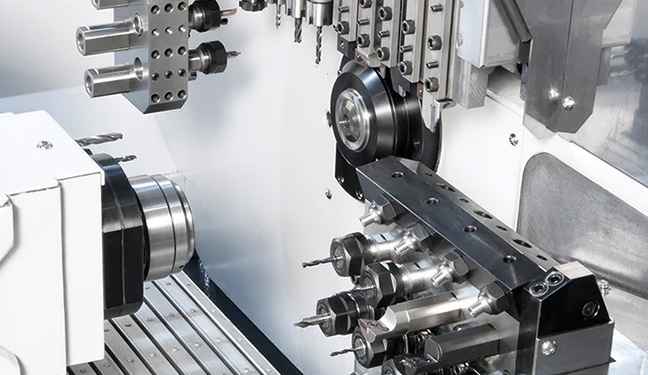Who is the "lifeline" guarding precision transmission?
Jun 12, 2025
As the core component of precision transmission, the performance of ball screw directly affects the positioning accuracy and motion stability of the entire system. According to statistics, more than 60% of CNC machine tool precision failures are related to screw wear or preload failure. Today, we will mention and introduce the key technologies and practical methods of ball screw detection.
1. Geometric accuracy detection
Lead error: Use laser interferometer for detection, the cumulative error of high-end lead screws throughout the entire process must be ≤5μm/m
Thread profile accuracy: Profiler measures tooth angle deviation (within ±30')
Middle diameter runout: V-block with micrometer detection, typical value ≤0.01mm
2. Motion performance detection
Reverse clearance: Through forward and reverse micro-motion measurement, the precision level should be ≤3arcmin
Friction torque detection: Torque sensor measures starting torque (usually <1% rated dynamic load)
Temperature rise characteristics: Infrared thermal imager monitors the temperature rise curve during high-speed operation
3. Durability detection
Life test: ≥1 million reciprocating tests under rated load
Wear measurement: Three-coordinate machine regularly detects changes in raceway profile
Vibration spectrum analysis: FFT analyzes abnormal vibration frequency components
4. Evolution of detection equipment: From mechanical measuring tools to intelligent diagnosis
Mechanical micrometer + standard gauge block
Optical projector detects thread profile
Limitations: Relying on operator experience, low efficiency
Laser interferometer (such as Renishaw ML10)
Contact profiler (Taylor Hobson Form Talysurf)
Advances: Accuracy of 0.1μm, digital output
Online monitoring system (such as THK's i-Smart)
Machine vision automatic detection (Keyence CV-X series)
Advantages: Real-time data acquisition + AI fault prediction
5. Practical skills for on-site detection
Case: Troubleshooting of Z-axis jitter in machining center
Preliminary judgment: Use a dial indicator to detect axial movement (measured 0.08mm, 3 times the standard)
Depth detection:
Laser interferometer detects the lead error curve and finds local mutation points
Endoscope checks the nut raceway and finds that 2 balls are broken
Solution: Replace the nut assembly and re-tighten it to eliminate jitter
6. Outlook for cutting-edge detection technology
Quantum sensing detection:
The German PTB Institute has achieved nanoscale strain measurement based on diamond NV color centers, which can detect the microscopic stress distribution of the screw.
Digital twin technology:
The virtual screw model is constructed through real-time data, and the remaining life accuracy is predicted to be 92% (Siemens verification data).
Terahertz non-destructive testing:
Japan's THK laboratory uses 0.3THz waves to detect internal defects of resin cages, with an identification accuracy of 50μm.
7. Golden rules for maintaining precision
Three elements of daily maintenance:
Lubrication management: Use designated grease (such as Klüber Isoflex NBU15)
Dust prevention measures: Cleanliness level ISO 4406 16/14/11
Preload adjustment: Regularly check the change in preload torque
Scrap judgment criteria:
Replacement should be made when any of the following conditions occur:
Lead error exceeds initial value by 300%
Roller peeling area > 3mm²
Cage deformation causes ball jamming
Conclusion:
Inspection engineers are transforming from "quality judges" to "precision doctors", using intelligent detection methods to diagnose high-end equipment. In this world of micron-level precision, every precise measurement is a commitment to the quality commitment of "Made in China".
 Network Supported
Network Supported